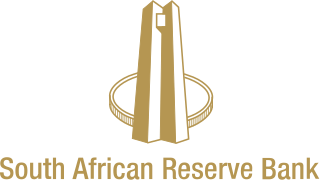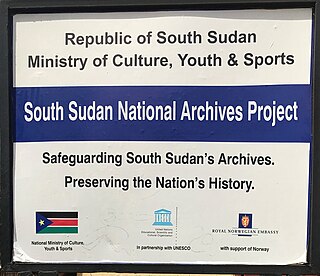An official language is a language having certain rights to be used in defined situations. These rights can be created in written form or by historic usage.

The Pan Africanist Congress of Azania is a South African national liberation Pan-Africanist movement that is now a political party. It was founded by an Africanist group, led by Robert Sobukwe, that broke away from the African National Congress (ANC) in 1959, as the PAC objected to the ANC's "the land belongs to all who live in it both white and black" and also rejected a multiracialist worldview, instead advocating a South Africa based on African nationalism.

NKo (ߒߞߏ), also spelled N'Ko, is an alphabetic script devised by Solomana Kanté in 1949, as a modern writing system for the Manding languages of West Africa. The term NKo, which means I say in all Manding languages, is also used for the Manding literary standard written in the NKo script.
Fang is a Central African language spoken by around 1 million people, most of them in Equatorial Guinea, and northern Gabon, where it is the dominant Bantu language; Fang is also spoken in southern Cameroon, the Republic of the Congo, and small fractions of the islands of São Tomé and Príncipe. It is related to the Bulu and Ewondo languages of southern Cameroon.
.za is the Internet country code top-level domain (ccTLD) for South Africa. The .za namespace is managed and regulated by the .za Domain Name Authority (ZADNA). Most domains are registered under the second-level domain .co.za.

At least thirty-five languages are spoken in South Africa, twelve of which are official languages of South Africa: Ndebele, Pedi, Sotho, South African Sign Language, Swazi, Tsonga, Tswana, Venda, Afrikaans, Xhosa, Zulu and English, which is the primary language used in parliamentary and state discourse, though all official languages are equal in legal status. In addition, South African Sign Language was recognised as the twelfth official language of South Africa by the National Assembly on 3 May 2023. Unofficial languages are protected under the Constitution of South Africa, though few are mentioned by any name.
Lenasia, also known as Lenz, is a suburb south of Soweto in the Gauteng province, South Africa, originally created to house Indians. It is part of the City of Johannesburg Metropolitan Municipality. Lenasia is approximately 35 kilometres southwest of the Johannesburg Central Business District.

uShaka Marine World is a 16-hectare (40-acre) theme park that opened on 30 April 2004 in Durban, KwaZulu-Natal, South Africa. It has a total capacity of 4.6 million gallons containing 10,000 animal species.

The South African Reserve Bank (SARB) is the central bank of South Africa. It was established in 1921 after Parliament passed an act, the "Currency and Bank Act of 10 August 1920", as a direct result of the abnormal monetary and financial conditions which World War I had brought. The SARB was only the fourth central bank established outside the United Kingdom and Europe, the others being the Federal Reserve, Bank of Japan and Bank of Java. The earliest suggestions for the establishment of the Central Bank in South Africa date back to 1879. A select committee, of ten members of Parliament, was established on 31 March 1920 to examine the benefits to the national interest of the establishing of the central bank.

South African Sign Language is the primary sign language used by deaf people in South Africa. The South African government added a National Language Unit for South African Sign Language in 2001. SASL is not the only manual language used in South Africa, but it is the language that is being promoted as the language to be used by the Deaf in South Africa, although Deaf peoples in South Africa historically do not form a single group.
Webber Wentzel is an African law firm headquartered in Johannesburg, South Africa. The firm operates in a collaborative alliance with global law firm, Linklaters.

Togo is a multilingual country, which according to one count has 44 languages spoken. The official language is French. In 1975, the government designated two indigenous languages - Ewé and Kabiyé - as national languages, meaning that they are promoted in formal education and the media. The two national languages tend to be used regionally with Ewé used in the south from Lomé to Blitta, and Kabiyé from Blitta to Dapaong in the north.
The Department of Justice and Constitutional Development is the justice department of the South African government. The department provides administrative and financial support to the court system and the judiciary, oversees the National Prosecuting Authority, provides legal advice and representation to organs of state, and facilitates law reform.

South Sudan is a multilingual country, with over 60 indigenous languages spoken. The official language of the country is English which was introduced in the region during the colonial era.

Racial groups in South Africa have a variety of origins. The racial categories introduced by Apartheid remain ingrained in South African society with South Africans and the governing party of South Africa continuing to classify themselves, and each other, as belonging to one of the four defined race groups. Statistics South Africa asks people to describe themselves in the census in terms of five racial population groups. The 2022 estimates were 81.4% Black or Indigenous South African, 7.3% White South African, 8.2% Coloured South African, and 2.7% Indian South African.
The South African Library for the Blind (SALB) is a statutory body with the objective to provide a national library and information service to serve blind and print-disabled readers in South Africa.

Chief (Kgoshi) Mamphoku Makgoba was a Northern Sotho Chief who ruled Makgobaskloof in the Soutpansberg, former Northern Transvaal, Mopani district, South Africa. His tribal totem is the Tlou of BaTlou tribe.
Kaaps, also known as Afrikaaps, is a West Germanic African language that evolved in the Western Cape province of South Africa. Its status as a sister language of Afrikaans or a dialect of Afrikaans is unclear. Since the early 2020s there has been a significant increase in the number of works of literature published in Kaaps. Most works in Kaaps come from authors located in the Cape Flats area of Cape Town, South Africa where it is most commonly spoken. Although Kaaps is considered a growing phenomenon, it is more specifically a colloquial dialect of Afrikaans. All other distinct colloquial variations of Afrikaans, including Kaaps, are organically connected to Standard Afrikaans as a widely spoken unitary variety and interact with it.
SADiLaR, is a Department of Science and Innovation-sponsored initiative to create and manage digital resources and software supporting research and development in digital language resources in South Africa.










